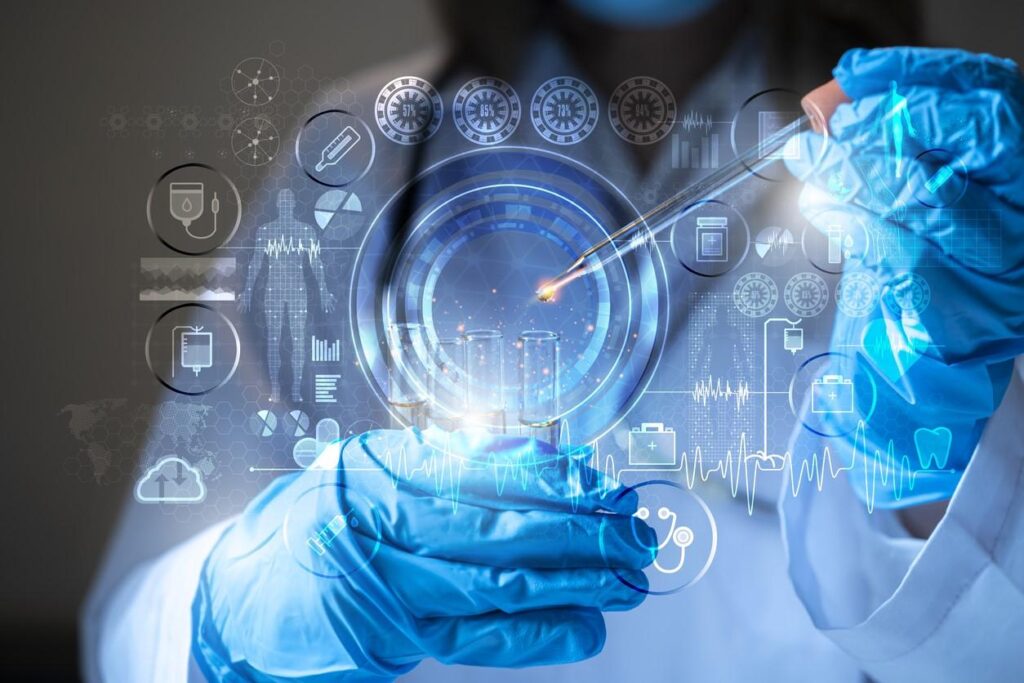Harnessing AI in the Advancement of Antibiotic Discovery: A Critical Leap Forward in Combating MRSA
- by ai
- in Breakthroughs, Featured
- on December 29, 2023

The Advent of AI in Antibiotic Research
In the last few years, the medical community has been cautiously optimistic about the role of artificial intelligence (AI) in revolutionizing drug discovery. This optimism is not without merit as scientists have recently made strides in antibiotic research, a field that had not experienced a major breakthrough for more than 60 years. Using sophisticated AI techniques, researchers have unearthed a potentially revolutionary class of antibiotics, targeting the highly drug-resistant Staphylococcus aureus, better known as MRSA.
MRSA, a formidable opponent in the public health realm, has claimed thousands of lives annually, with current antibiotic options dwindling in efficacy. This newly discovered antibiotic, however, leverages the power of deep learning AI to bring new hope in the battle against the superbug.
The groundbreaking research signifies a pivotal moment in medical history. Led by James Collins, a renowned professor of Medical Engineering and Science at the Massachusetts Institute of Technology (MIT), and a team of 21 collaborators, the study made groundbreaking advancements with AI's assistance. Their work, featured in the scientific journal 'Nature,' showcases an effective, insightful, and practical method from a chemical structure standpoint for discovering antibiotics, which propels the process of drug discovery into a new era.
The 'Black Box' of Deep Learning Models
Deep learning, a subset of machine learning in AI, operates much like the human brain by processing and analyzing data with neural networks. The term "black box" is often associated with these models because, prior to this study, the internal workings and decision-making processes of AI were virtually impenetrable.
In the case of drug-resistant bacteria like MRSA, which presents a spectrum of health issues ranging from skin infections to life-threatening diseases, the lack of understanding within the AI black box had been a significant barrier. In response, the MIT team sought to illuminate these opaque processes, hence transforming the black box into a glass house of sorts, where model's decisions could be observed, understood, and trusted.
AI-Powered Research Methodology
To achieve their aim, the researchers deployed an advanced deep-learning model, which was meticulously trained with a vastly enlarged dataset – a catalogue of roughly 39,000 compounds and their antibiotic activity against MRSA. The comprehensive data, alongside detailed chemical structure information, was fed into the model, equipping it with an extensive knowledge base for the identification of new antibiotic structures.
Global Implications and the Burden of MRSA
This breakthrough comes at a critical moment. The European Centre for Disease Prevention and Control (ECDC) reports nearly 150,000 MRSA infections annually, accompanied by a staggering 35,000 deaths in the European Union. The reach and severity of MRSA underscore the urgent need for effective treatments and the global impact of this research.
A Refined Selection Process
The study progressed further with the integration of three more deep-learning models, each trained to assess the toxicity of compounds on different types of human cells. These models provided an additional layer of analysis, weeding out compounds that could potentially pose harm to human health. After screening 12 million commercially available compounds, the AI models zeroed in on five chemical classes that proved to be active against MRSA.
Laboratory Validation and Promising Results
The team acquired and tested around 280 compounds from these classes, leading to the identification of two promising candidates. Both showed efficacy in reducing the MRSA bacteria in mice by an impressive factor of ten – a significant step forward. These tests involved models for both MRSA skin infection and systemic infection, providing a comprehensive view of the compounds' potential.
Unpacking the Broader Potential of AI in Medical Science
The use of AI in antibiotic discovery is a mere glimpse into the vast capabilities of this technology. The integration of additional deep-learning models to evaluate toxicity underscores the tremendous potential for AI to streamline the drug discovery process further, making it faster, more efficient, and potentially more personalized to patient needs.
The combination of rapid screening and accurate predictions by AI models not only accelerates the path to clinical trials but also increases the probability of success. The implications for personalized medicine are profound, with these methods potentially leading to the development of tailored treatments to meet individual patient requirements.
The Future of Antibiotic Treatment and AI's Role
As discussed, this research is not only groundbreaking in the field of antibiotics but also indicative of the sweeping changes AI can bring to all areas of medicine. The strategic application of AI in drug discovery could redefine our approach to treating diseases, predicting potential side effects, and personalizing patient care.
The interdisciplinary approach of this study, uniting biological sciences with computational algorithms, is a testament to the transformative power of technology in improving healthcare outcomes. The promise of AI to unlock new frontiers in medicine is becoming increasingly tangible with each discovery, such as this one.
In conclusion, this significant development in antibiotic discovery heralds a new dawn in medicine, shaped by the remarkable influence of artificial intelligence. The journey from data to life-saving drugs exemplifies the synergy between biological and computational sciences. It paints a future where diseases like MRSA can be combated effectively, thanks to the precision and power of AI-driven research. As we navigate this exciting realm of possibilities, one thing is clear: the fusion of AI and medical science is the beating heart of modern healthcare innovation, leading us to a future where no ailment remains unchecked.
Unveiling AI’s Impact on Advancing Antibiotic Discovery
Tags: Antibiotic Discovery, Artificial Intelligence in Medicine, Combating MRSA, Deep Learning Breakthroughs, Future of Pharmacology